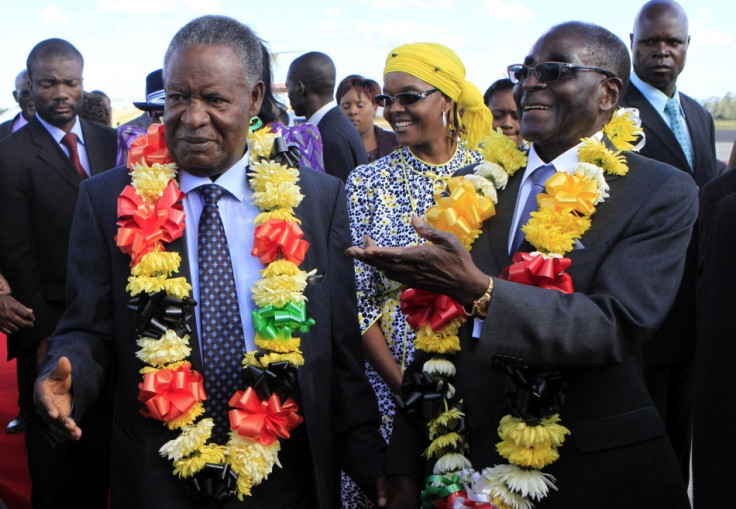Zimbabwe’s Robert Mugabe and Zambia’s 'King Cobra' Appointed UN Leaders for Tourism
Zimbabwe and Zambian presidents to spearhead UN tourism campaign

Zimbabwean president Robert Mugabe and his Zambian counterpart Michael Sata have been honoured as "leaders of tourism" by the United Nations World Tourism Organisation (WTO).
In a move that has stunned human rights organisations, Robert Mugabe, 88, and Sata, 75, signed an agreement on the border between the two countries at Victoria Falls Bridge, which will see them co-host the WTO general assembly in 2013.
The assembly will be held in Victoria Falls and the historic colonial city of Livingstone in Zambia.
During the ceremony, Mugabe and Sata signed the "golden book of tourism", in which they agreed to co-host the event, and received open letters from WTO secretary general Taleb Rifai calling on them to promote tourism in their respective countries.
Speaking at the event, Rifai said: "By coming here, it is recognition, an endorsement of the country [Zimbabwe] that it is a safe destination."
Mugabe said: "The signing of the trilateral agreement is of historical importance.
"For our people, the signing of the agreement attests to our commitment, our readiness to welcome the entire tourism fraternity to our countries. For the UN World Tourism Organisation, on the other hand, the signatures testify to the confidence and trust that was bestowed upon us."
The Zimbabwean president said the event would cement the promotion of cross-border tourism between the two countries.
"For us as 'Siamese twins', Zimbabwe and Zambia, the pledge is to assiduously work together toward August next year and, hence, the signing ceremony confirms our readiness to work together to promote tourism primarily in our own countries, while also casting the net wider to reach other tourism markets," he said.
Sata, who is known as King Cobra in Zambia, said promoting tourism would help fight poverty in both countries.
"The Zambian government strongly believes that tourism should bring tremendous socio-economic progress and [be] a catalyst for rural development," he said.
International commentators and rights activists have condemned the UN organisation for bestowing honours on the two men.
Kumbi Muchemwa, spokesman for Zimbabwe's opposition party the Movement for Democratic Change, told the Guardian: "I can't see any justification for the man being an 'ambassador'. An ambassador for what? The man has blood on his hands. Do they want tourists to see those bloody hands?"
He also pointed out: "Robert Mugabe is under international sanctions, so how do you have an international tourism ambassador who can't travel to other countries?"
The organisation's move follows UN commissioner for human rights Navi Pillay's recent call for Western countries to lift sanctions on Zimbabwe and its president, Robert Mugabe.
Throughout the decades in which Mugabe has been in power, he has repeatedly been accused of corruption and rigging elections, along with keeping a tight grip on power by terrorising the population and brutally suppressing dissidents and activists.
Despite his government's poor records on human rights and the economy, Mugabe's anti-western diatribes have made him a popular leader on the African continent.
Mugabe and Sata have a close relationship, with the Zambian president even describing his Zimbabwean counterpart as "a good friend of mine".
In contrast, Sata's relationship with Zambian opposition leader and prime minister Morgan Tsvangirai is less amicable and the two men give each other a wide berth.
Sata was a member of the ruling United National Independence Party in Zambia, which played an important role in the country's struggle to liberate itself from British rule when it was known as Rhodesia.
In addition to receiving Sata's support, the UN honour has come as a boost to Mugabe, who is pushing for the country to hold presidential elections next year.
© Copyright IBTimes 2025. All rights reserved.





















